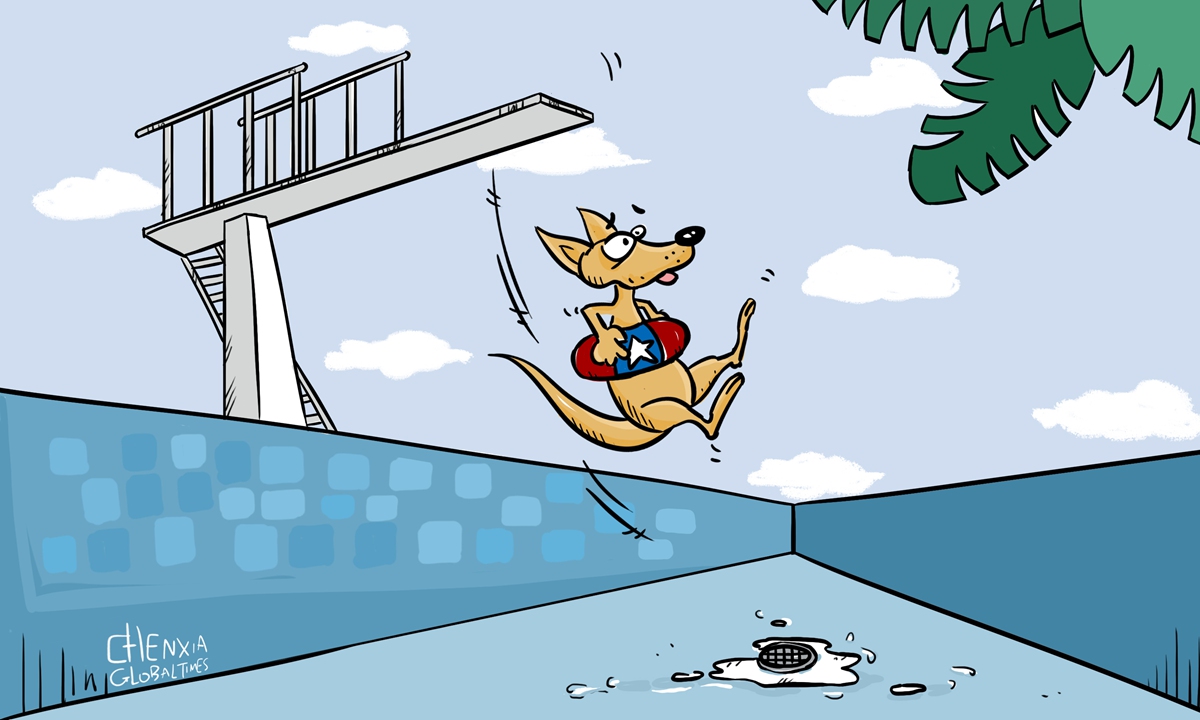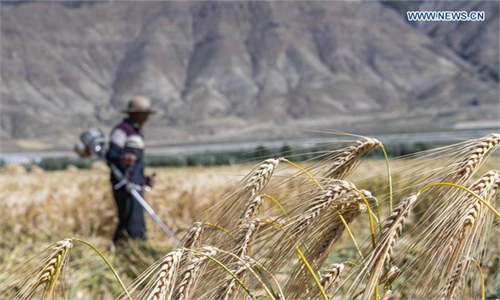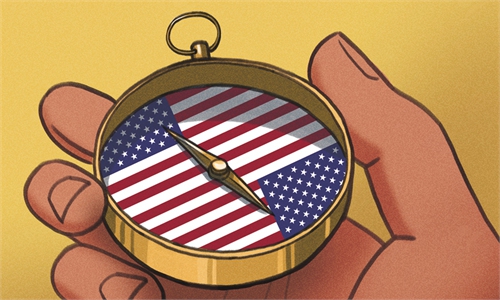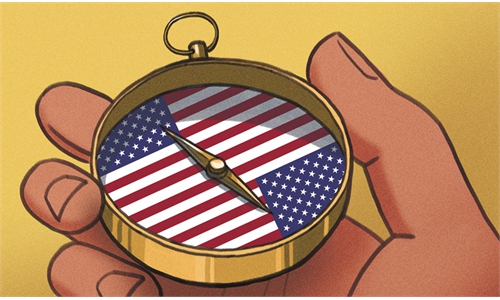COMMENTS / COLUMNISTS
For Australia, working hand in hand with the US is a dead-end strategy

Illustration: Chen Xia/GT
With a rapidly prospering China, the road of confrontation which the current Australian government has chosen for itself against China won't be an easy trek, and will very likely prove to be a dead end for Canberra. The decades-long mutually beneficial economic relationship between the two countries is gone.
With a declining economy and jobs evaporating by tens of thousands, Prime Minister Scott Morrison's administration has run itself into a corner. Canberra should have attempted to uphold a friendly relationship with China, its largest trade partner consuming approximately one third of Australia's annual exports.
But Canberra has bucked the logic, instead racking up animosity and increasingly showing hostility toward Beijing.
Recently, Australian intelligence officers stormed into and forcibly searched the residences of a group of Chinese journalists stationed there, hastening the unraveling of already fraught relations between the two countries. Chinese students and diaspora have also been targeted with their personal safety being threatened in a wave of rising racism.
In recent times, many Chinese see Canada under the Justin Trudeau's administration and Australia under the Morrison's administration as two of the most unfriendly countries toward China. Australia and Canada, two close associates of the Five Eyes alliance, created and led by Washington, are actually in the "vanguard" of the US President Donald Trump government's containment strategy against China.
Chinese tech firm Huawei -- a shining light illuminating high-tech research and innovations in China has been highly valued and respected. Since 2012, to prevent China from catching up with the US in a technology race, the US government has meted out a slew of incessantly restricting and coercive measures to harass and destroy Huawei's growth. With Trump coming to power in 2017, the US has launched the most relentless attack on Huawei yet.
To support Trump's bare-knuckled assault to destroy the Chinese high-tech company, Canberra and Ottawa, two staunch accomplices of the US government, were the first two governments in the world to suppress Huawei.
In mid-2018, Canberra was the first to echo the US' bullying policy, announcing Australia will exclude Huawei's 5G from its future networks; and later that year the Canadian government, in a clandestine and despicable conspiracy with the US' FBI, seized Huawei's top executive Meng Wanzhou at the Vancouver International Airport on her way to Mexico, and Ottawa has refused to let her go home until this day.
In addition to attacking Huawei, in July this year, Canberra wrote a letter to UN Secretary-General Antonio Guterres, stating that Australia does not recognize China's building of islands on reefs in the South China Sea, which is a serious provocative act against China's territorial integrity. China has exercised effective jurisdiction over relevant islands, reefs, and waters in the South China Sea for thousands of years, which have been clearly outlined in the historical Nine-Dash demarcation lines.
Once again, Canberra chose to follow on the heels of US Secretary of State Mike Pompeo who said earlier in July that China's claims across most of the South China Sea were "unlawful."
Some Chinese experts say that the pains felt by Chinese people are indelible, and they will work hard to build up China's economic and military capabilities.
Now on the political level, there is a consensus that China-Australia relations have sunk to their lowest ebb in many decades.
Canberra's half-baked effort to "reset" relations with Beijing is laughable, provided it continues to dig its head in the sand over the two premium issues of Huawei and the South China Sea.
Australia exports billions of dollars of mineral resources and agricultural products to China every year, which contributes significantly to Australia's affluence. However, the constantly souring relations have led to declining exports of barley, wine and beef to China.
If Canberra stubbornly follows in the steps of the US government to contain China, its exports of wool, iron ore, coal and gas, which make up a big proportion of its annual sales to this country, will feel the pinch.
China hawks in the Australian government say they will diversify from exporting to China, setting a goal to send A$45 billion ($32.8 billion) in yearly exports to India by 2035. But in 2019, Australia exported $103.9 billion to China. The smaller market just doesn't have a big appetite for Australian goods, like China's.
Those in Australia who have far-sighted vision about China-Australia ties need to ratchet up pressure on Canberra to change its hardline policy toward Beijing, and not always work hand in hand with the US' government to harm China.
The author is an editor with the Global Times. bizopinion@globaltimes.com.cn



